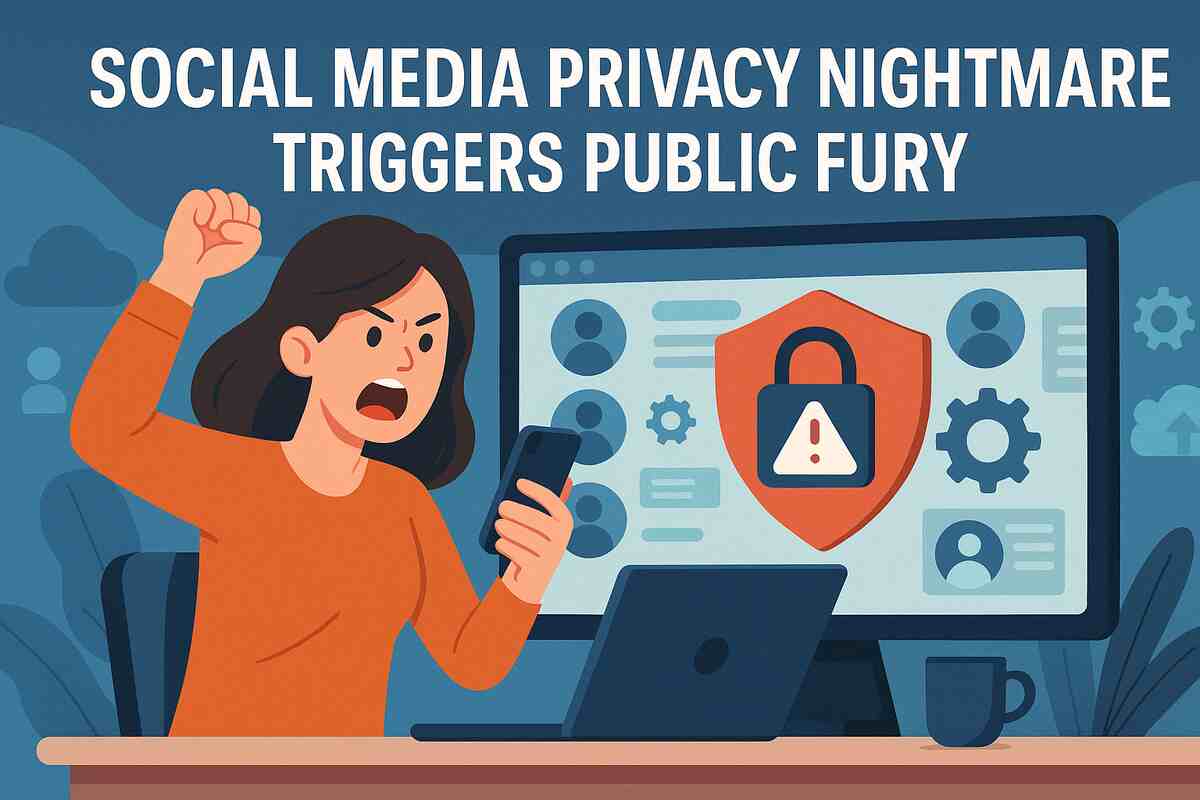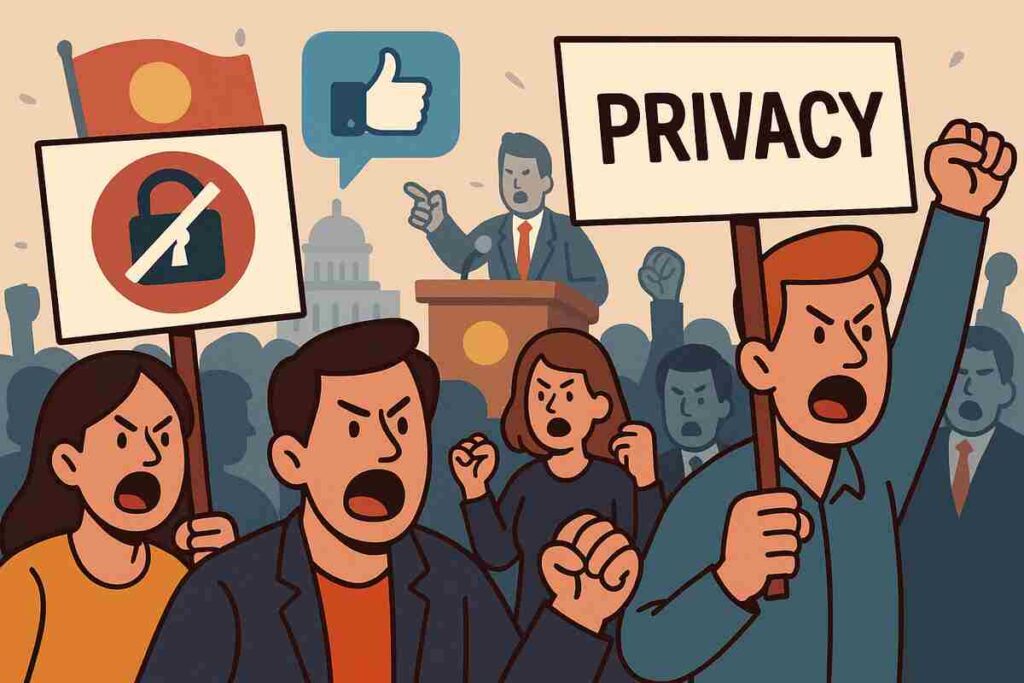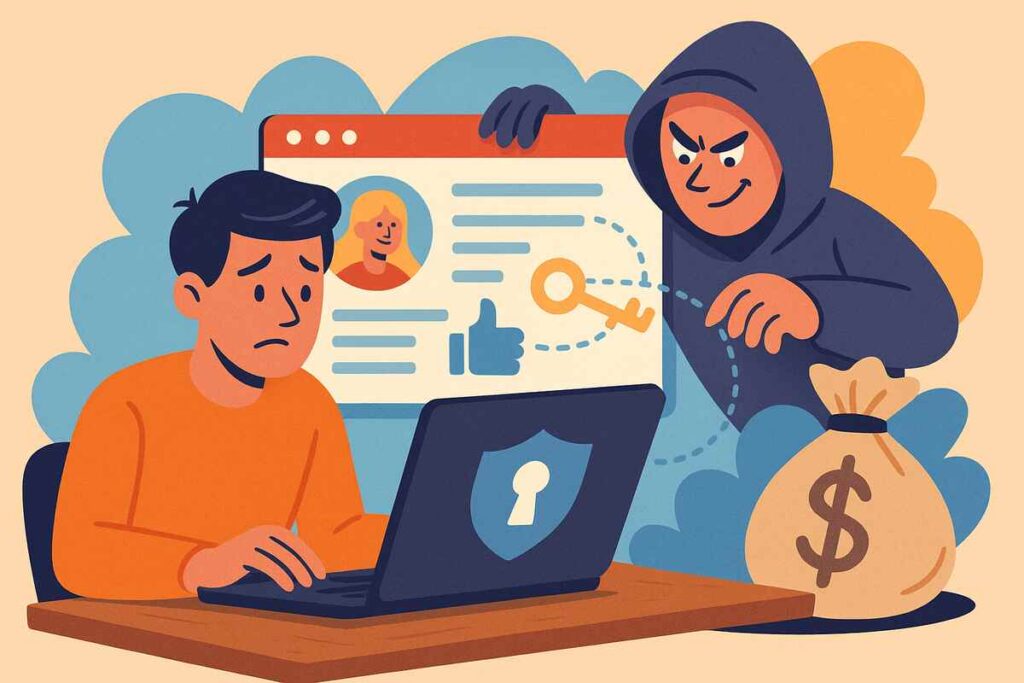Physical Address
304 North Cardinal St.
Dorchester Center, MA 02124
Physical Address
304 North Cardinal St.
Dorchester Center, MA 02124

In the digital age, few issues strike a nerve like a breach of personal data. The latest social media privacy scandal has ignited public outrage, exposing how easily user trust can be shattered. With billions of users globally entrusting their private lives to these platforms, even a single violation can escalate into a full-blown crisis. This article dives into the intricacies of the recent social media privacy nightmare, its causes, public backlash, and what it means for the future of digital communication.
The scandal began with the unauthorized collection and sale of private user data by a major platform. Initially uncovered by a whistleblower, the breach affected over 80 million users. Sensitive information such as location data, private messages, and behavioral patterns was sold to third parties, including political analytics firms and advertising networks.
This breach highlights just how much data social platforms gather—often without explicit, informed consent.

Unlike financial institutions that face stringent regulations, social media platforms operate in a murky space. Most users blindly accept lengthy terms of service, granting platforms broad access to personal content.
According to a Pew Research Center study, 79% of Americans are concerned about how companies use their data, yet most feel powerless to stop it.

The backlash was swift. Hashtags like #Delete[PlatformName] and #PrivacyIsPower trended globally. Thousands of users deactivated their accounts, while others downloaded their data archives and were shocked by what had been stored.

While platforms claim to prioritize user privacy, many exploit legal gray areas to harvest data.
Platforms use behavioral science to nudge users toward sharing more, often by hiding critical controls behind layers of interface.
Despite the systemic issues, users can take steps to better protect themselves.
Platforms like Mozilla and EFF offer user-friendly guides for digital privacy practices.
The business model of many platforms hinges on surveillance capitalism—collecting and analyzing user data for profit. This makes data breaches not a bug, but a feature of the system.
Until incentives shift, privacy will remain a secondary concern.
Following the breach, governments worldwide are accelerating legislative efforts.
While laws exist, enforcement remains inconsistent. Critics argue that penalties must increase and that platforms should be required to undergo regular privacy audits.
This scandal has become a turning point in the public discourse around digital rights. Users are demanding more transparency, better tools, and accountability.
Industry giants must now decide: evolve toward ethical data practices or risk losing user trust entirely.
The recent scandal has ignited global outrage and cast a long shadow over digital trust. The social media privacy nightmare is not just a tech issue—it’s a societal one, with implications for democracy, mental health, and economic power. As users and regulators demand change, platforms must recognize that safeguarding privacy is not a feature but a fundamental right. The future of online communication depends on it.